Heroic Rescues and Massive Airlifts: Animal Welfare Organizations Respond to Hurricane Helene
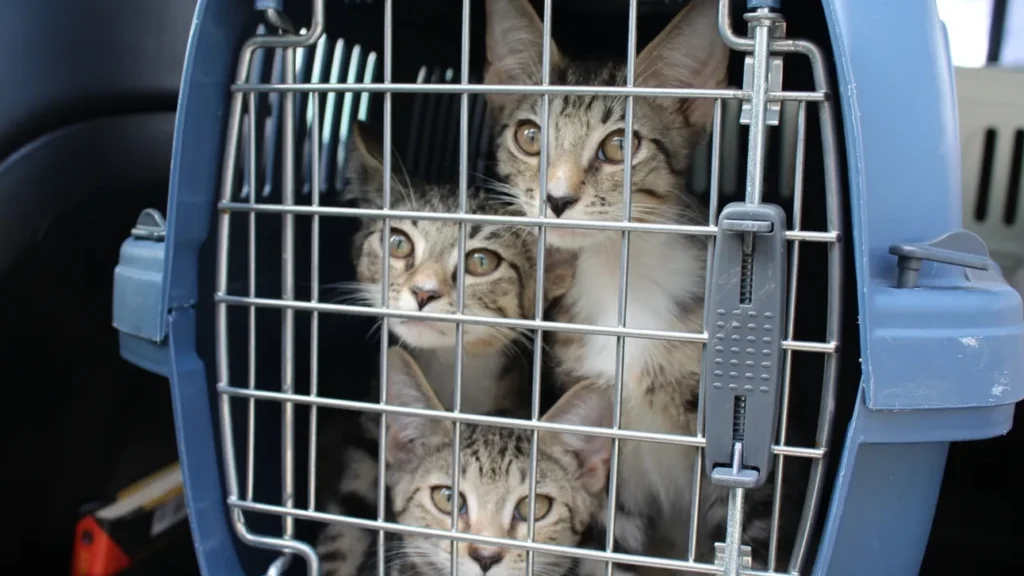
ASHEVILLE, NC – October 2, 2024 – As rescue and recovery operations continue in the wake of Hurricane Helene, the known loss of human life from the Category 4 storm has exceeded 190 persons across seven states. In the aftermath of Hurricane Helene’s devastating impact on the southeastern United States, major animal welfare organizations have sprung into action to rescue and care for displaced pets and shelter animals across multiple states.
From large-scale airlift operations to individual acts of heroism, the response showcases the resilience and dedication of those committed to animal welfare in times of crisis.
Massive Airlift Operations Save Hundreds
A significant rescue effort involved the evacuation of more than 100 animals from the Asheville Humane Society (AHS) in western North Carolina. The BISSELL Pet Foundation, in collaboration with the Forsyth Humane Society in Winston-Salem, in southern North Carolina, coordinated a complex airlift operation. They transported over 1,000 pounds of donations to Asheville and will work together to distribute the supplies to assist the hard-hit Asheville region. The return flight airlifted more than 100 animals from the devastated Asheville Humane Society facility to safety at Forsyth Humane in Winston-Salem.
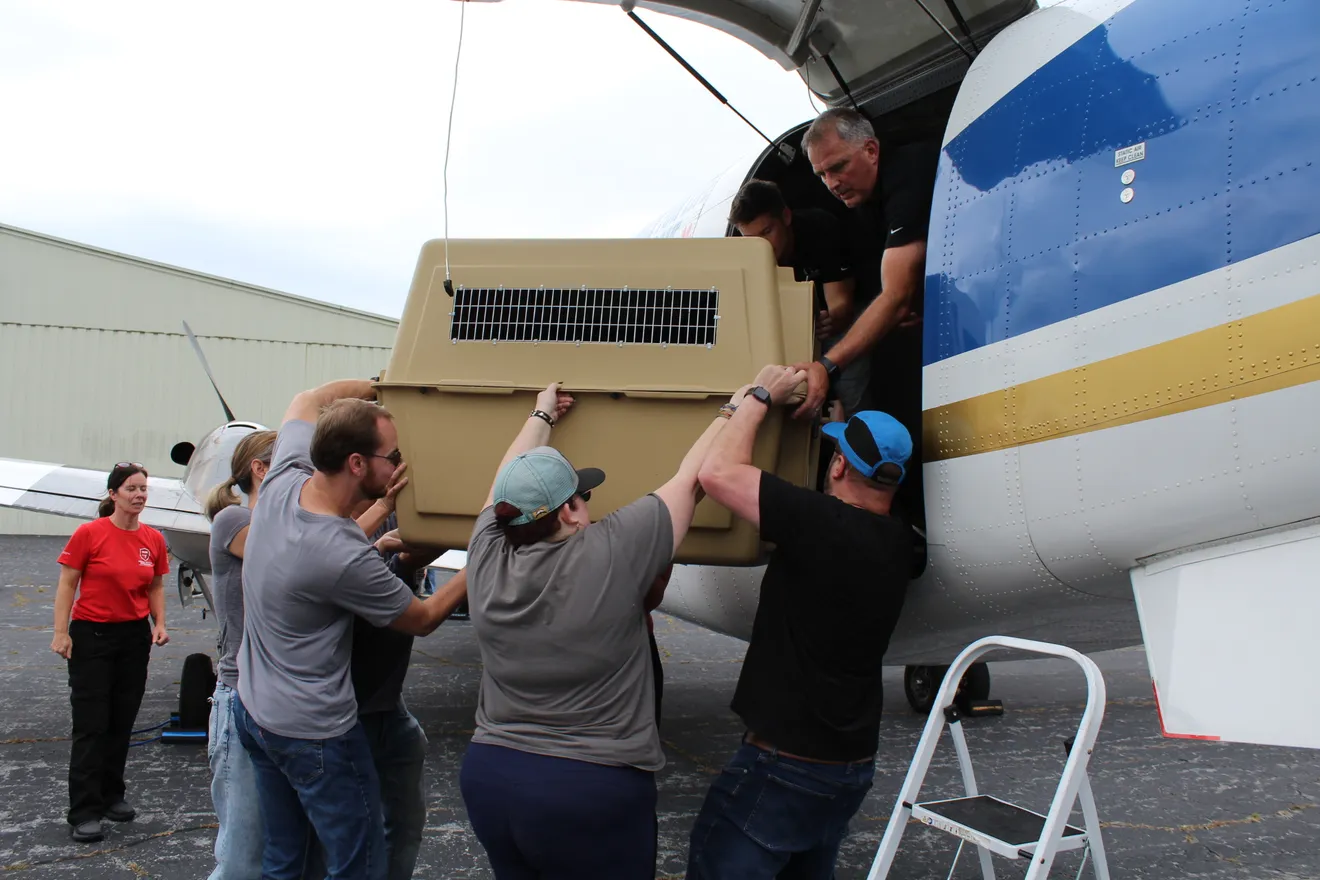
Asheville Humane and Bissell Pet Foundation staff and volunteers in Asheville, NC loading some of the more than 100 animals for airlift to safety in Forsyth County, NC. – Photo Credit: Asheville Humane
“Staff and volunteers always give so much of themselves to our animals, but today was beyond anything we could ever ask for,” AHS stated on their Facebook page. The operation saw 40 dogs, 57 cats, and numerous small “pocket” animals safely transported to safety.
In a separate crucial mission, over 100 cats and dogs from Florence-area shelters in South Carolina were airlifted to Waukesha, Wisconsin. This operation, coordinated by Greater Good Charities, aimed to create space in local shelters for pets displaced by Hurricane Helene in harder-hit areas of Florida and North Carolina.
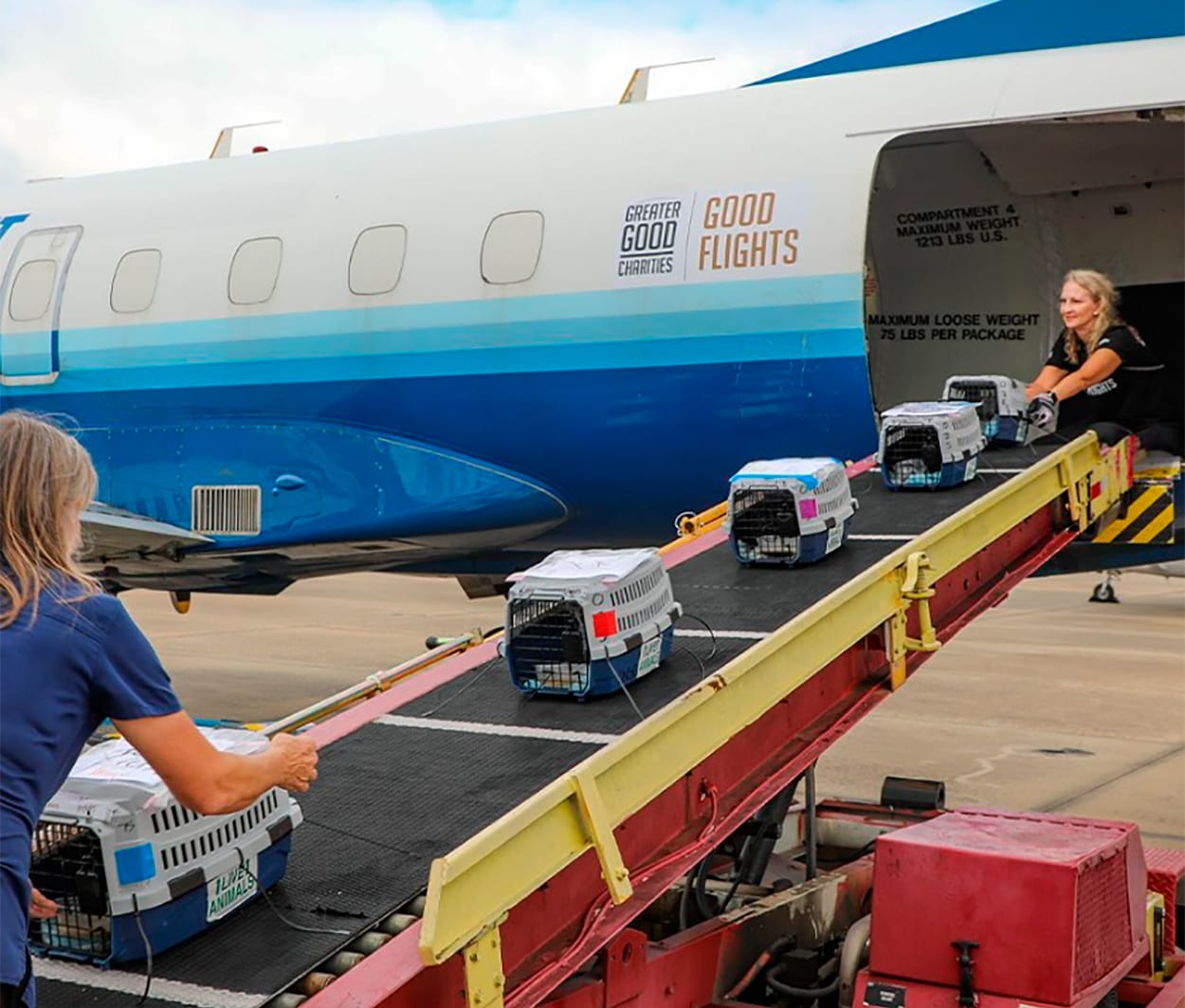
Animals being loaded onto Greater Good Charities flight from South Carolina to Waukesha, Wisconsin in the aftermath of Hurricane Helene. – Photo Credit: Lucky Dog Rescue
Erin Robbins, Vice President of Pet Programs at Greater Good Charities, emphasized the importance of these relocations: “Without space, they have to make very difficult decisions. It’s the shelter pets that were there before the disaster hits that are the ones that have to be sacrificed, unfortunately, for space.”
In addition to the airlift operation, Greater Good Charities is on the ground in North Carolina, Florida and other severely impacted states, delivering lifesaving supplies and collaborating with local partners to reach the communities in greatest need.
Heroic Rescues Amid the Chaos
While large-scale operations have been crucial in evacuating shelter animals, individual acts of heroism have been saving lives across the affected regions. These dramatic rescues highlight the dedication of first responders and rescue teams working tirelessly to save both humans and animals in peril.
Dog Rescued from Raging Floodwaters in Tennessee
In Cocke County, Tennessee, first responders demonstrated extraordinary bravery on September 29, 2024, as they battled treacherous floodwaters to save a dog swept away by the current. Footage released by the Tennessee Wildlife Resources Agency captured the heart-stopping moment when rescuers, risking their own safety, pulled the struggling canine from the swirling waters.
This video has no sound
This rescue was just one of multiple operations carried out by the Cocke County team that day, showcasing their unwavering commitment to saving all lives – human and animal alike – in the face of Hurricane Helene’s devastating impact.
Coast Guard Rescues Man and Dog Off Florida Coast
In a dramatic sea rescue, a Coast Guard Air Station Clearwater helicopter crew saved both a man and his loyal canine companion from a dire situation off the coast of Florida. On September 26, 2024, as Hurricane Helene approached, the crew responded to a distress call from a 36-foot sailing vessel taking on water 25 miles off Sanibel Island.
Petty Officer 2nd Class Hudson, an aviation survival technician, was lowered from the helicopter to perform the challenging rescue. Despite the rough seas and dangerous conditions, Hudson successfully hoisted both the man and his dog to safety. The pair were reportedly in good health and were transported to Southwest Florida International Airport, where they were met by emergency medical services.
This rescue not only highlights the Coast Guard’s skill and bravery but also emphasizes the strong bonds between humans and their pets, with neither willing to abandon the other even in life-threatening circumstances.
Ongoing Search-and-Rescue Operations
The American Society for the Prevention of Cruelty to Animals (ASPCA) has been at the forefront of ongoing search-and-rescue missions, conducting both water and land operations in heavily impacted areas.
In Florida, ASPCA teams have been working tirelessly, navigating through flooded streets and damaged neighborhoods to locate and rescue stranded animals. These operations are often challenging and dangerous, with rescuers facing unstable structures, contaminated floodwaters, and other hazards.
Meanwhile the ASPCA was forced to conduct a transport operation to ensure the safety of their staff and animals impacted by the storm. They evacuated more than 30 homeless dogs from their Behavioral Rehabilitation Center in hard-hit Weaverville, North Carolina, to their Cruelty Recovery Center in Ohio.
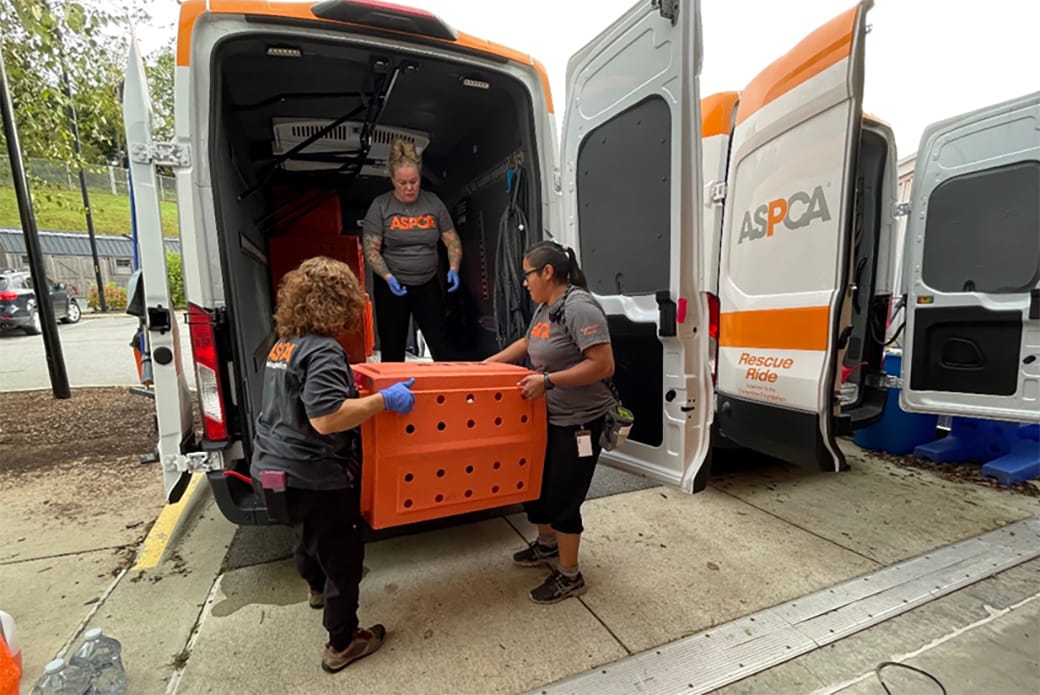
ASPCA evacuates animals from their Behavioral Rehabilitation Center in Weaverville, North Carolina, to their Cruelty Recovery Center in Ohio.
Clint Ganus, Manager of Disaster Response for the ASPCA, emphasized the importance of these efforts: “In the aftermath of storms such as Hurricane Helene, the ASPCA’s priority is to provide local agencies with the critical support and resources they need to safely care for animals affected by disasters. The full impact of this devastating hurricane is still being realized.”
Brother Wolf Animal Rescue’s Narrow Escape
While large-scale operations grabbed headlines, countless local stories of heroism and narrow escapes unfolded across the affected regions. One such story comes from the Brother Wolf Animal Rescue in Asheville, North Carolina, which faced complete destruction from Helene’s floodwaters.
Leah Craig Chumbley, the executive director of Brother Wolf, recounted the harrowing experience: “I’ve been to disaster zones before to help animals and having this happen in your own town and the level of devastation. Buildings are gone, like all you can see is concrete foundations.”
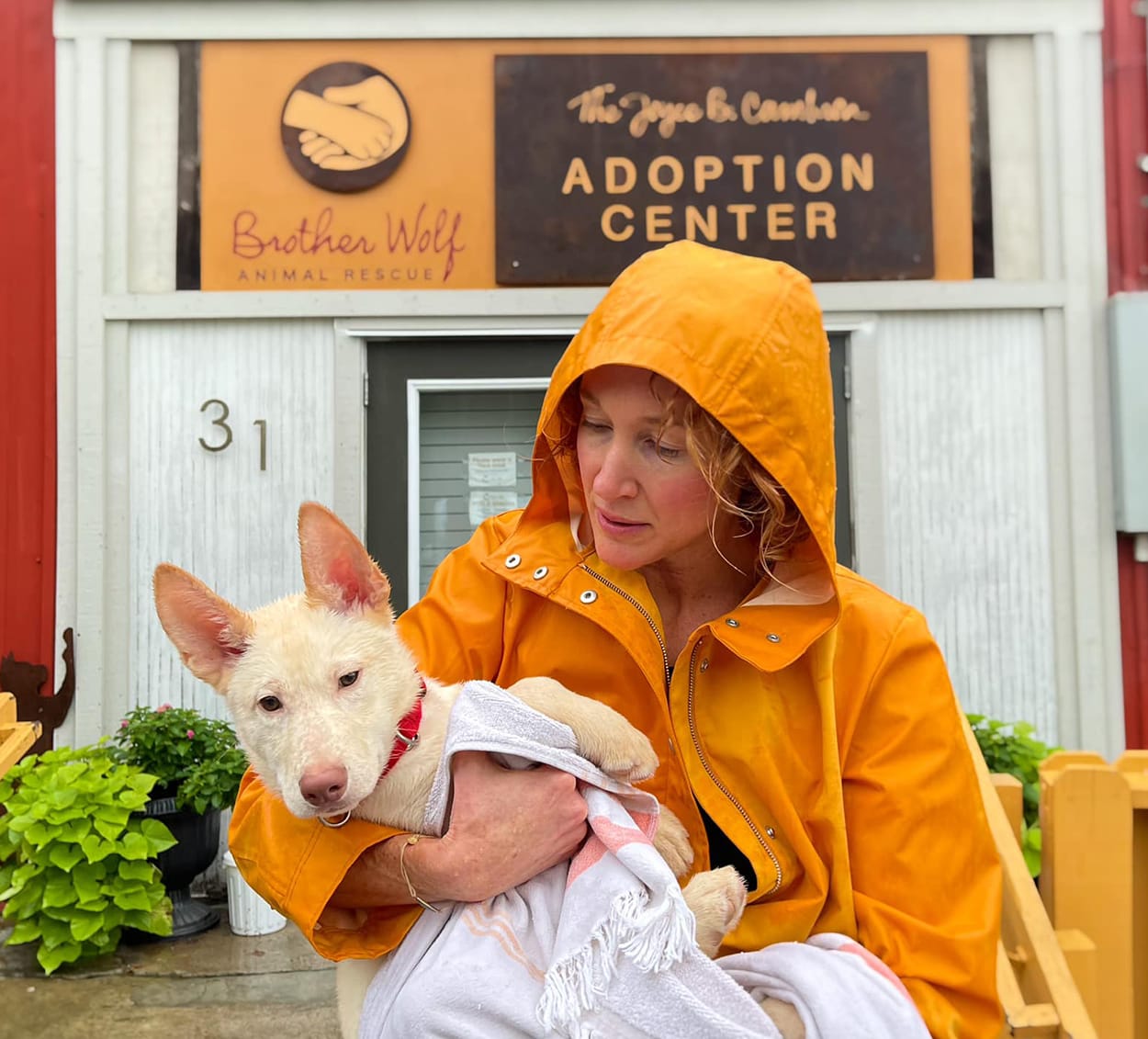
One of the 150 animals evacuated from Brother Wolf Rescue just hours before Hurricane Helene Destroyed the facility. – Photo Credit: Brother Wolf Rescue
The rescue’s staff managed to evacuate 150 animals just hours before the storm hit. “Thank goodness we got those animals out. I mean, if we hadn’t gotten those animals out the day before, hours before that storm hit, all of our animals would have perished in that building,” Chumbley said.
In the aftermath, 50 of Brother Wolf’s foster animals were taken in by the Humane Society of Charlotte, North Carolina showcasing the critical importance of inter-organizational cooperation in times of crisis.
How to Help and Stay Prepared
These dramatic rescues and tireless efforts by organizations across the affected regions underscore the immense challenges faced in the wake of Hurricane Helene. As the work continues, many are asking how they can support these efforts and better prepare for future disasters.
As recovery efforts continue, animal welfare organizations are facing numerous challenges, including lack of running water, power outages, and overwhelming numbers of displaced animals. Many shelters, including the Asheville Humane Society, are currently unable to accept new animals and are urging community members to temporarily house and care for any found strays if possible.
Organizations are calling for public support through monetary donations, supplies, and volunteer efforts. The Asheville Humane Society, for instance, has highlighted gas as one of their primary needs, along with monetary donations to fuel their ongoing rescue efforts.
These heroic rescues serve as powerful reminders of the importance of including pets in disaster preparedness plans. Experts stress that pet owners should never leave their animals behind during evacuations and should have emergency kits ready for their pets, including food, water, medications, and identification documents. If you’ve had to evacuate without your pet, it’s crucial to contact local animal control or emergency management offices to report your pet’s location and request rescue assistance.
As the recovery efforts continue, these organizations remain committed to helping animals and supporting the communities impacted by Hurricane Helene. The collaborative efforts between local, state, and national animal welfare groups highlight the importance of preparedness and swift action in the face of natural disasters, ensuring that no pet is left behind.


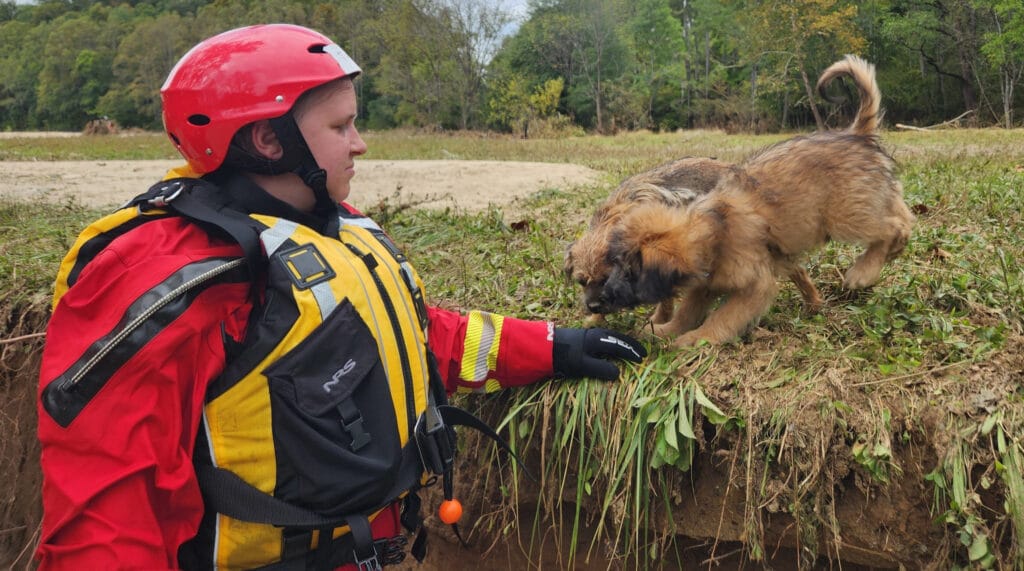

Responses